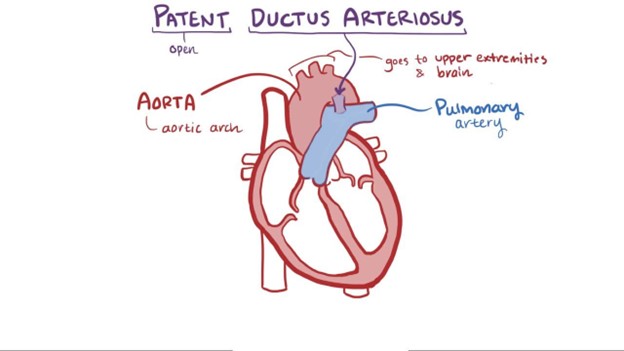A nurse is caring for a 2-month-old infant who is postoperative following surgical repair of a cleft lip. Which of the following actions should the nurse take?
Encourage the parents to rock the infant.
Administer ibuprofen as needed for pain.
Position the infant on her abdomen.
Offer the infant a pacifier
The Correct Answer is A
Correct answer: A
A. Encourage the parents to rock the infant: Rocking provides comfort and soothing for the infant. It helps reduce anxiety and promotes relaxation during the immediate postoperative period
B. Administer ibuprofen as needed for pain: Administering ibuprofen as needed for pain is not typically recommended for infants under 6 months of age without specific instructions from the healthcare provider. Ibuprofen is generally avoided in young infants due to potential risks of adverse effects, especially in the immediate postoperative period
C. Position the infant on her abdomen: After cleft lip repair surgery, it is generally recommended to position the infant on her back to prevent any pressure on the surgical site and to minimize the risk of infection. Placing the infant on her abdomen may interfere with the healing process and increase the risk of complications.
D. Offer the infant a pacifier.
Avoid the use of oral suction or placing objects in the mouth such as a tongue depressor, thermometer, straws, spoons, forks, or pacifiers.
Nursing Test Bank
Naxlex Comprehensive Predictor Exams
Related Questions
Correct Answer is A
Explanation
The nurse should recommend bananas as a safe food choice for a 2-year-old child. Bananas are soft and easy to chew, making them safe for young children. They do not pose a choking hazard, unlike grapes, raw carrots, or celery.
Option B (Grapes) can be a choking hazard for young children, especially if they are not cut into small pieces or are given whole.
Option C (Raw carrots) and Option D (Celery) are hard and crunchy, and they require more chewing, which may not be safe for a 2-year-old child who is still developing their chewing and swallowing abilities.
As a general guideline, when selecting foods for young children, it is essential to choose soft, easily chewable, and non-choking hazard options to promote safe eating and reduce the risk of choking incidents.
Correct Answer is B
Explanation
A patent ductus arteriosus (PDA) is a congenital heart defect associated with increased pulmonary blood flow. In normal fetal circulation, the ductus arteriosus allows blood to bypass the lungs since the baby receives oxygen from the mother's placenta. After birth, the ductus arteriosus should close, redirecting blood flow to the lungs for oxygenation. However, in some infants with PDA, the ductus arteriosus remains open, causing an abnormal connection between the aorta and the pulmonary artery. As a result, oxygenated blood from the aorta flows back into the pulmonary artery, increasing the workload on the lungs.
The other options are as follows:
A. Coarctation of the aorta - Coarctation of the aorta is a narrowing of the aorta, which obstructs blood flow and leads to increased blood pressure in the upper body and reduced blood flow to the lower body.
C. Tetralogy of Fallot - Tetralogy of Fallot is a combination of four heart defects that results in decreased pulmonary blood flow due to a ventricular septal defect (VSD), overriding aorta, pulmonary stenosis, and right ventricular hypertrophy.
D. Tricuspid atresia - Tricuspid atresia is a congenital heart defect where the tricuspid valve does not develop correctly, resulting in an absent or abnormal tricuspid valve. This defect prevents blood flow from the right atrium to the right ventricle and, therefore, reduces pulmonary blood flow.

Whether you are a student looking to ace your exams or a practicing nurse seeking to enhance your expertise , our nursing education contents will empower you with the confidence and competence to make a difference in the lives of patients and become a respected leader in the healthcare field.
Visit Naxlex, invest in your future and unlock endless possibilities with our unparalleled nursing education contents today
Report Wrong Answer on the Current Question
Do you disagree with the answer? If yes, what is your expected answer? Explain.
Kindly be descriptive with the issue you are facing.
